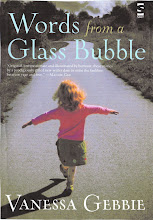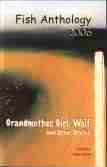It was interesting to read on Emma Darwin’s excellent blog (This Itch of Writing, linked on the right somewhere) abut yet another ‘debate’ (or stronger) on WriteWords, about guidelines, or rules, call them what you will, when it comes to learning to write well.
I was slapped down so hard when I started such a debate there last year, that I left, and my heart goes out to whoever is embroiled in it this time. I hope they survive unscathed! WriteWords is a very good place, with much of interest for writers, and some excellent expert advice.
But. One piece of expert advice I just could not get my head round was the assertion that there were no rules or guidelines to follow that would sharpen your work. (Semantics, to me. At the time both words were too emotive.). The assertion, not from Emma, was that writing ought to be a free for all (I gathered this was the meaning) and originality and good writing would bob to the top regardless. At the time, no one mentioned the need for learning at any point. All ‘guidelines’ were said to be unnecessary and a constraint.
I believed strongly that this is not right, and said so, to my cost. Of course, writing needs …no … MUST have originality if it is to get anywhere… and of course, if learner writers had to kowtow to ‘you must do this, you must do that’, then the process for many would be killed straight off. That goes without saying!
There are no ‘musts’… and I couldn’t get that across because the air was thick with agendas at the time. My own learning route had been one that was not liked by many (keeping personalities out of it) and I think this was clouding the issue.
Now, however, Emma quotes a very interesting Buddhist tenet (I paraphrase) “When the pupil is ready, the teacher will appear.” I love that thought. But it does embrace the belief that we are all ready to be taught in our own time. That has to include that some may be ready to be taught from the start, and that some may never be ready.
All I can say is that had I not had the teaching I had and still seek from those whose writing I admire, my own writing would be perfectly functional and it would ‘work’ but that teaching lifted it out of the ‘ordinary’. It showed me what was possible. And I am still working towards that.
Of course there are guidelines!!! I spent a wonderful week in the company of Maggie Gee and Jacob Ross late last year at an Arvon course. Every day we discussed what worked and what didn’t, right across the spectrum. Process and product. Each and every one of us had one to one time in which we were offered guidelines, on a personal basis, for improving our work. And every day we had group workshops in which both writers shared their vision of what guidelines they follow. And the agreement is surely that if those are assimilated, and used by the individuals in their own ways, their work will improve.
Why do writers of all levels go on courses? To learn from writers who are more successful than they are. To sit at the feet of the successful for a short while, ready to learn.
The argument will probably be that there are no general guidelines. That every writer has to find their own.
But in that case, why are there so many ‘how to’ books on the market? Why are there writing courses at ever level, not just at the highest levels, for those who can already ‘write’?
The article in The New Writer I blogged about yesterday offers a few guidelines that might help writers maximise their chances of bobbing to the top in writing competitions. But they aren’t ‘mine’, those guidelines. I was taught them, by someone who was no doubt taught them himself. Nothing is new.
I have been invited to do a workshop at a local independent school. I am writer in residence at Gateway Academy Tilbury, for this term and some of next. I teach teach teach. Never ever saying you MUST’ do anything. But once creativity is opened up, once we have each other’s confidence, pointing out that if you consider ‘this’ or ‘that’, your prose will be sharper. If you do this that, your narrative structure will be sharper. If you do this, that, your characters might end up more engaging.
All stuff I learned myself, from a good but controversial tutor.
All ‘guidelines’ for strengthening your prose, your characters, your narrative structure. And so on. No one’s saying you have to follow them. There are plenty of places who will pick up your work without them, you may even get rich without them.
But without those guidelines/rules I certainly would not have been placed at Fish and Bridport. Without those ‘rules’ my short stories would have been rejected by Salt Publishing like the majority of submissions there are.
Maybe it’s a question of semantics, all this? Maybe the concept of ‘rules’ is disliked, and ‘guidelines’ softens it a little? Maybe there’s another word that would make it yet more comfortable?
Whatever. As in any artistic endeavour, I reckon before you break the rules/guidelines you need to learn them first and then you can break them with impunity.
EMMA'S DECEMBER ARTICLE on the folly of following rules unthinkingly
CURRENT ARTICLE,
Sunday, 20 January 2008
Subscribe to:
Post Comments (Atom)




.JPG)























9 comments:
Vanessa, I think the point is that on - say - your Arvon course, it IS individual. Of course good teachers look at your work and say, 'You might find it works better if you do X' or 'Y doesn't usually work, you might try doing something else.' Though I would always argue that the alternative path - of trying to do Y better - is even more valuable.
It's not just semantic nit-picking to make a distinction between rules and guidelines - there is an enormous difference. The trouble with the 'rules' when people talk about them is that they're taken as 'must' rather than 'things to try which often work'. Inevitably how-to books are particularly at risk of doing this, because by definition they can't be individual, but I suspect some classes do too - it works for long division, but not for writing. (And I don't think the fact that the books sell in their thousands proves much, except that a lot of people want to learn to write) But whoever's promulgating rules as things you must do, the almost inevitable result seems to be that writing that doesn't follow them is considered to have failed. Which is clearly ridiculous, but it certainly does happen, and not only at the informal online level.
I'm not surprised that some writers, feeling confident that they've painfully learnt the rules of good writing, get panic-stricken (and therefore defensive) by being told that it's no guarantee that their writing is good after all. But the solution is surely to help them to greater confidence in their own, independent judgment of how their own and others' writing works.
HI Emma
Thanks for replying:
I think we are agreeing, at base. Online places get so heated.
It is interesting to see that the very topic of 'is University the place to teach creative writing' is being aired more and more.
(I'm picking up on your words...re 'rules': that "writing that doesn't follow them is considered to have failed. Which is clearly ridiculous, but it certainly does happen, and not only at the informal online level."
The Royal Society of Literature is exploring this very thing:
Friday 4 April 2008
Joint event with the Oxford Literary Festival, at Christ Church, Oxford, 6pm
University: the wrong start for a writer? — Michael Holroyd, Maggie Gee
Chair: David Dabydeen
If I know Maggie, it will be a sparkling debate. Because writing is judged and so often found wanting at these places.
By whose 'rules'???
V
Several people alerted me to this piece yesterday, and I thought it was important I respond so as to clear up any misrepresentation of the site.
So, just to reprise that Write Words thread where you say : “At the time, no one mentioned the need for learning at any point”, here are some moments during the discussion where I reiterated that writers need to learn:
- (Me): “At the Arvon I taught…”
- (Me): “Classes in writing for particular markets, or discussions of technique, or writing exercises are all brilliant add-ons that a writer at any level might take advantage of…”
- (Me): “I never ever said we didn't have to learn.”
- (Vanessa): "But Im not sure it is entirely right to say that guidance stultifies all the time." – (Me): “I certainly never said that, or indeed anything like it.”
- (Vanessa): “I bet that the poor people who believe those pieces are good enough to win a competition have never listened to any advice, from anyone!"
- (Me): "Then they jolly well should. They should be sharing with trusted readers, going on courses, joining this forum, reading lots and lots. No one's advocating beginners shouldn't get advice."
- (Me): “I read and studied fiction for more or less the whole of my (11+) life. It took me several years to find my voice.”
- (Me): “I never said at any point here (or anywhere else for that matter) that beginner writers are likely to 'just write brilliant prose straight off'.”
- (Vanessa): “the only thing I stuck to was my belief that the vast majority of writers learn to improve their writing over time.”
- (Me): “Did anybody, at any point, disagree with that? Writers carry on learning about language all the time. (Actually, all of us carry on learning about language, it's just that the gradient of the curve flattens out.)”
- (Vanessa): “I understand that some people dont like a dvice from others, that they want to carve their own way. That they find advice like that stultifying.”
- (Me): “I never said I didn't take advice. I've been happy and grateful, to have my work read and commented on.”
- (Vanessa): “Most writers have to work, learn, get it wrong, relearn, get it wroing again, get it a little better. And for most writers it takes years of hard work.”
- (Me): “Did all that. I was writing novellas as well, and had been for about three years, so I'd got a lot of learning words under my belt. And it was another six years before I placed my first novel.”
And here’s the thread, which incidentally contains no “slapping”, just really interesting debate, if anyone wants to check it out: http://www.writewords.org.uk/forum/65_144135.asp#144135
Hi Kate
Thanks for commenting.
At no time have I sought to misrepresent Writewords. I said (and meant it) that it is a valuable resource for writers.
It is interesting to revisit parts of the thread that got so heated, and thank you for posting them. At the time I recall emotions ran high. I believed and still do, that it was not a debate in which both sides had equal footing. So I left. Life’s too short.
My belief regarding writing guidelines still stands, that there are guidelines that apply to all writers, not just individuals, guidelines which will sharpen writing. NOT make them clones, NOT detract from originality, but improve the standard of their prose.
I have never said writers ‘must’ do anything. That would be damaging, and as my whole ethos is one of supporting and opening up creativity, I would be working against myself. But I do offer guidelines. All we can do as teachers is try to sharpen the tools in the writers’ toolboxes, pass on what works for us. It’s up to them to listen or not.
Let me give you an example.
A class of newbie writers is given an exercise in (let’s say) writing dialogue. Many of them, thinking it is more intelligent perhaps, cleverer, more ‘writerly’, litter their piece with tags.
He opined.
She asserted.
He responded.
She articulated.
He cogitated.
She ejaculated. (!)
Ad nauseam.
The teacher might take the view that these are a sign of something less than good prose, and might suggest that to use ‘said’, or indeed no tags, is generally better. That of course there is a place for the above, very carefully selected, IF they serve the work. But IF the pupil’s goal is to write strong prose in addition to writing a good story, they will need to take care with these tags.
A guideline. A general rule.
And yes, if an objective of the course was to improve prose, and if students handed in work that was unthinkingly littered with these tags, the teacher might mark them down. Because the prose would be better without them. Period.
Sure, those newbie writers can shrug, and do their own thing. And they may well get published and do OK. But it won’t be in places that require a rigorous approach to prose.
That is what I was trying to say, and was unable to say it without being told I was wrong, constantly. So I left. It became a political event, not a writing discussion. When you said above: writers should join forums, read, etc. they are doing so to learn, yes? And in among the reading, discussing and so forth, they will pick up some general dos and don’ts.
Generalisations. General guidelines.
Some generalisations that tend to make for better writing. Dylan Thomas over Enid Blyton. (ridiculous perhaps… but both sit somewhere on a continuum of ordinary to special.) Not mathematical; Not empirical. But solid enough.
I'm not here to debate rules again, just to correct your misrepresentation. The thread speaks for itself, I think.
Best wishes
Kate
Its a shame! The whole thread is about the existence and validity or not, of guidelines for writers...
It's a valuable debate, and one that is carrying on at the highest levels.
But again, thanks for taking the time.
Maybe, reading your excerpts back, we can see where the opinions differed.
There are many ways to learn. As many as there are students, I guess.
To me, it is a formal process.
What an interesting topic, I enjoyed reading your posts - a pity some of the rest of the debate, especially some comments, are clouded by a little unkindness. But your post was fascinating - thanks.
Hello there Stuck in a Book,
Wow. WHAT a fascinating blog you have... I have linked, and look forward to discovering some gems.
I am glad you found the post interesting.
And yes, some of the comments were on the wrong side of engaging... but there's nothing I can do about that!
It is a very important debate to have. Good strong prose is ...good strong prose, if that doesn't sound daft. Original thought expressed well is extraordiarily powerful.
But as George Steiner said the other day, in his view, we have gone wrong in the UK, somewhere.
Good writing has nothing whatsoever to do with how successful one is in publishing terms. Often, the least 'well written' stuff does incredibly well in financial terms, and that's fine. This, I think, is somewhere near the root of the issue, on occasion.
Post a Comment